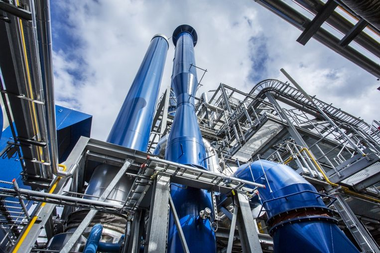Two pilots for the more sustainable chemo-enzymatic production of chemicals via new EU project
(06-11-2019) The GREEN-CHEM network joins various other partners in a new project hat aims to incite a transition to a more green and sustainable chemistry.
Researchers from the GREEN-CHEM network, at Ghent University and at Oleon, join forces with VITO and various other partners from Italy, Germany and France in a newly approved H2020 project, called INCITE (Innovative Chemo-enzymatic Integrated Processes). INCITE aims to incite a transition to a more green and sustainable chemistry by taking novel integrated upstream and downstream processing paths involving flow chemistry and membrane technology in two chemo-enzymatic processes to an industrial level.
Two demonstration cases
The modularity and flexibility of the developed chemo-enzymatic processes will be showcased through two demonstration cases in real industrial settings, one in Belgium and one in Italy. Both processes will be using hydrolases for the sustainable, safe and energy-efficient production of commodity and fine chiral chemicals. Hydrolases are a class of more than 200 enzymes that catalyze the hydrolysis or the use of water to break a chemical bond, of several types of compounds, which typically results in dividing a larger molecule into smaller molecules. The first demonstration case involves the esterase-catalyzed production of a chiral molecule used as starting material for the production of compounds in the field of crop protection and public health. The second demonstration case relates to solvent-free synthesis of oleochemical esters, which are used in the production of soap and detergents, using lipase enzymes.
Sustainability
“In INCITE, both processes will be tested in real industrial settings and we, together with prof. Jo Dewulf at Ghent University (UGent), will develop training materials and test whether the industrial processes are actually more sustainable”, says prof. Christian Stevens, promoter of the GREEN-CHEM network. “Both cases should have clear advantages of greater efficiency, higher product quality, higher safety and a smaller environmental footprint”. The project estimates reaching a minimum of 20% decrease in greenhouse gas emissions and a minimum of 40% resource and energy efficiency gains.
GREEN-CHEM collaboration
The project led by Oleon, a Belgium-based company and one of the leading producers of oleochemicals since the 1950s, will bring together various partners from Belgium, Italy, Germany and France. As one of the Belgian partners, Ghent University will be spearheaded by the research group of prof. Christian Stevens and the research group of prof. Jo Dewulf. The latter will oversee the sustainability assessment by doing life cycle assessment on the environmental and social aspects of the project. The former will develop learning resources and training in the INCITE project. “Via the distant learning infrastructure that we have at the faculty of Bioscience Engineering we will also target industry professionals with our trainings”, explains prof. Stevens. “This infrastructure also includes an online platform to create webinars and e-knowledge clips to disseminate knowledge to target partners’ employees at INCITE and among the industry partners and associations of the GREEN-CHEM network.”
The third Belgian partner, VITO, the Flemish institute for technological research, will be responsible for the integration and horizontal knowledge transfer activities between the project partners and for the integration of membrane technology with the bioprocesses.
Starting September 2019, these participants will work together with five partners in Italy, France and Germany to achieve their goals in a project of four years and with a budget of over 13M€.
Impact
In short, the chemo-enzymatic processes that will be demonstrated in INCITE will lead to a more targeted production at lower temperatures and fewer and less hazardous effluents than in currently used techniques. “Once demonstrated, they will have a significant potential for increasing product quality while reducing both costs and environmental footprint”, concludes prof. Christian Stevens.
